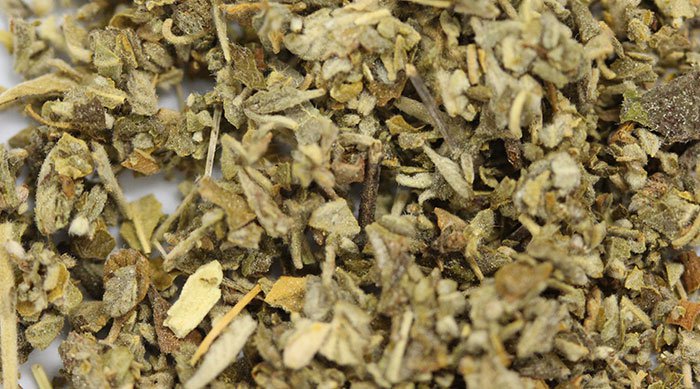Why Marijuana Lovers Are Selecting to Buy K2 Paper for Sale Online
Why Marijuana Lovers Are Selecting to Buy K2 Paper for Sale Online
Blog Article
Exploring the Promising Applications and Positive Impacts of Flavor as an Artificial Cannabinoid
In current years, the exploration of synthetic cannabinoids, particularly Spice, has sparked appealing conversations within the medical and clinical areas. The possible applications and impacts of Flavor in different restorative setups have actually attracted interest for their special residential or commercial properties and results on the human body. As research delves deeper right into this artificial substance, revealing its resemblances and differences with all-natural cannabinoids, a nuanced understanding of its benefits and obstacles arises. This conversation aims to clarify the appealing opportunities that Flavor presents in the realm of medical care and health, prompting a reevaluation of conventional methods to cannabinoid-based treatments.
Healing Prospective of Spice
Discovering the restorative potential of Seasoning, a synthetic cannabinoid, involves an important assessment of its pharmacological homes and possible clinical applications. Spice, likewise understood as artificial marijuana, interacts with the endocannabinoid system in a way similar to all-natural cannabinoids, such as those found in cannabis. This interaction leads to various physical effects that have actually sparked passion in its restorative possibilities.
Researches have suggested that Seasoning may have prospective as an analgesic, assisting to minimize discomfort in conditions such as neuropathic pain or persistent inflammatory discomfort - Buy K2 Paper For Sale. Additionally, its interaction with cannabinoid receptors provides an opportunity for exploring its usage in taking care of symptoms of conditions like several sclerosis or chemotherapy-induced nausea or vomiting and throwing up

Discomfort Monitoring Conveniences
Spice, a synthetic cannabinoid, shows encouraging potential suffering monitoring as a result of its analgesic residential or commercial properties and interactions with the endocannabinoid system. The analgesic residential properties of Spice come from its capability to modulate pain understanding paths, using remedy for various sorts of pain, including neuropathic, inflammatory, and nociceptive pain. By targeting the endocannabinoid system, Flavor can control pain signals, decrease inflammation, and relieve discomfort related to persistent pain conditions.
Studies have revealed that Flavor can efficiently minimize pain intensity and improve discomfort resistance in preclinical versions of discomfort. This artificial cannabinoid has actually demonstrated efficiency in managing pain symptoms without causing significant adverse effects commonly linked with standard discomfort medications. Furthermore, Spice shows possible in lessening opioid reliance and misuse, supplying a much safer alternative for pain management.
Neuroprotective Qualities
Synthetic cannabinoids like Seasoning have actually been increasingly identified for their prospective neuroprotective residential or commercial properties in minimizing neuronal damages and promoting mind wellness. Studies suggest that these substances might offer neuroprotection via numerous mechanisms, consisting of antioxidant results, anti-inflammatory homes, and inflection of neurotransmitter release. By click here to read engaging with the endocannabinoid system in the brain, artificial cannabinoids can manage neuronal activity and possibly lower the effect of neurodegenerative conditions or injuries.
One secret facet of the neuroprotective residential properties of Spice is its capability to regulate excitotoxicity, a process in which excessive stimulation of nerve cells results in cell damages or fatality. By regulating natural chemical launch and moistening excitotoxic signaling paths, artificial cannabinoids may assist guard neurons from hazardous overstimulation. In addition, the anti-inflammatory effects of Flavor can mitigate neuroinflammation, which is typically linked in various neurological conditions.
Relative Analysis With Natural Cannabinoids
In comparing the neuroprotective properties of synthetic cannabinoids like Flavor with those of all-natural cannabinoids, a nuanced analysis of their respective effects on neuronal health and wellness is critical. All-natural cannabinoids, such as those found in the cannabis plant, have been extensively examined for their neuroprotective impacts. These compounds engage with the endocannabinoid system in the body, which plays an essential role in maintaining neuronal function and safeguarding against neurodegenerative diseases.

Regulatory and Ethical Considerations
Considering the prospective ramifications on human health and wellness and well-being, an examination of regulatory and moral factors to consider bordering making use of artificial this link cannabinoids compared to natural cannabinoids is crucial. Synthetic cannabinoids, like Spice, existing special obstacles as a result of their commonly unknown chemical compositions and effectiveness variations. Regulative bodies face the difficult task of keeping up with the fast appearance of new artificial cannabinoid substances, which can make it difficult to implement regular and effective policies.

To address these governing and moral difficulties, policymakers need to focus on research right into the lasting effects of synthetic cannabinoids and develop clear standards for their production, sale, and usage. Education campaigns are important to educate the public regarding the threats connected with artificial cannabinoids and important source promote liable consumption methods. By taking aggressive procedures, culture can better guard against the possible harms presented by synthetic cannabinoids while upholding ethical requirements and protecting public health and wellness.
Verdict
In verdict, the investigation into the therapeutic potential of spice as a synthetic cannabinoid has shown promising results in pain monitoring and neuroprotection. On the whole, the favorable influences of seasoning as an artificial cannabinoid warrant more study and expedition in the medical area.
Report this page